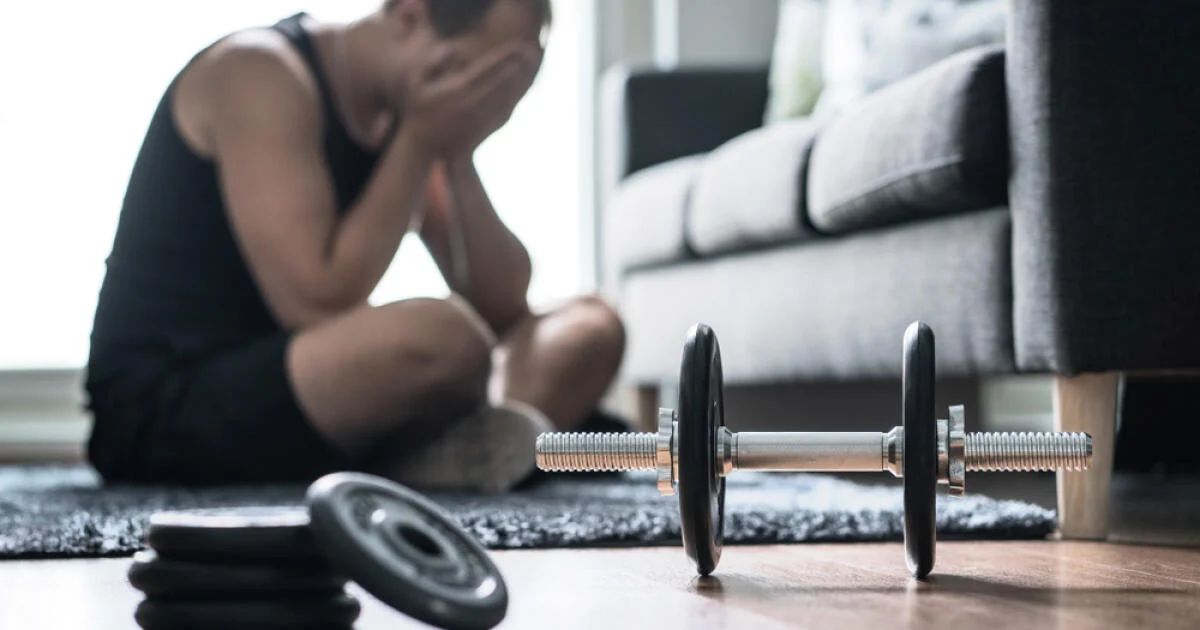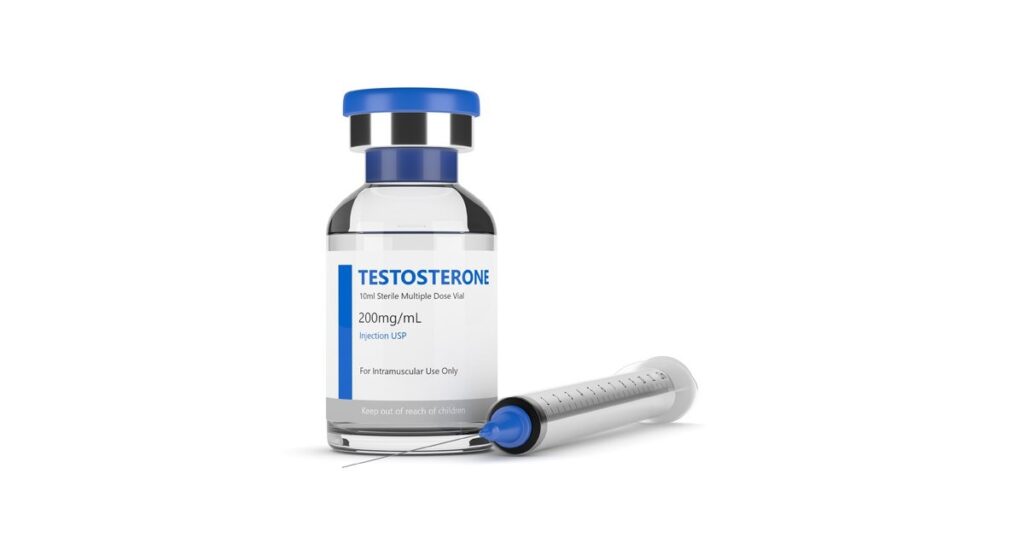Introduction
Bodybuilding is not about weights and the ideal body. It is a science-based field and comprises planned exercises, nutritious eating habits, adequate rest, and mental strength. Mistakes seen in bodybuilding are dangerous, whether you are an inexperienced man or an athlete who wants your abdomen at its best.
As the saying goes, “Train smarter, not just harder.” A renowned strength coach, Jeff Nippard, emphasizes that “every rep, every meal, and every rest counts when you’re building muscle.” In this article we are going to deconstruct the most common mistakes that bodybuilders make and offer some professional points and tips so that you can practically train without any injuries and hit your targets quicker. Gear Pharma offers anabolic steroids for muscle growth.
1. Starting up without a Plan
Probably the worst thing a new and even intermediate bodybuilder can do is to go to the gym and train aimlessly. Coming to the gym in an aimless state results in irregular development and exhaustion.
The best training program should include:
- It is ideal to target different muscle groups per week
- Use progression overload
- Strength and hypertrophy
Per Bodybuilding.com, periodized plans (phased training programs) can be useful to remain continuously growing and avoiding plateaus.
Hint: Have a fitness app or even a workout log to see what you have been lifting and do an adjustment each week.
2. Missing Warm-Up
Taking the shortcut of avoiding a warm-up is an easy way of incurring an injury. A warm-up activates the blood circulation, loosens joints, and preconditions the central nervous system to do bigger lifts.
An appropriate warm-up must contain
- 5-10 min light cardio (e.g., walking on treadmill)
- Muscle mobility exercises and stretching
- Lightweight warming sets
Trainer Insight: The glute specialist, Bret Contreras, or the so-called Glute Guy, advises to avoid exercising cold muscles because they are far more susceptible to strain. Warming up ensures that your exercise is more productive and will not result in any injury.
3. Ignoring the the Basics
Most people forget the fundamentals, like seeking to make dazzling tricks as they watch on social media, many learning how to perfect these.
- Squats
- Bench Press
- Deadlifts
- Pull-ups
- Rows
These basic movements do not only develop general strength but also enhance stability, coordination, and muscle balance. Do not do these too early at the expense of aesthetics.
4. Not taking Proper Nutrition
This is because in the gym you can build muscles, and in a kitchen you can feed them. Unhealthy nutrition habits such as undereating, unstable consumption of protein, or the use of junk food can ruin the success.
The diet used in bodybuilding should:
- Intake of adequate protein (1.6 to 2.2 g/kg body weight)
- Present wholesome fats and carbohydrates
- Diet for bulking or cutting (Support calories)
- Educator’s Note: The National Academy of Sports Medicine (NASM) believes that the timing of meals and macronutrient ratios have an immense contribution towards muscle recovery and development.
5. Insufficient Rest
Daily training is not the key to achieving better results. Overtraining causes fatigue, imbalance of hormones, and, finally, injuries.
- Symptoms of overtraining are
- Constant fatigue
- Insomnia
- Decreased strength
- Irritability
Solution:
- Rest 1 2 days a week or more
- Get 7 to 9 hours sleep at night
- Take deload weeks
6. Not Getting Time for Recovery

Recovery is not just the rest days; it is hydration and nutrition before as well as after the workout. It is necessary to get your muscle healed with peptides for healing.
Good recovery measures:
- Within 30 minutes of working out, protein
- Foam rolling is mobility work
- Contrast therapy (HOT/cold showers)
The lack of recovery decreases performance and elevates soreness. Consider it like the required tune-up of your body.
7. Not Keeping the Progress Track
If you will not measure it, you will surely guess it. Monitoring enlightens you on the direction you are on and enables you to make convenient modifications.
What you need to monitor:
- Weight and measurements
- Exercise performance (reps/sets/weights)
- Body composition (photos after 4 weeks)
Such apps as MyFitnessPal can be very helpful in this regard.
8. Being Impatient
Building a muscle, of course, takes time. The anticipation of rapid results causes most of them to give up or resort to relatively risky activities such as steroids.
Muscle gain natural lifters rate:
Newbies: 1-1.5 % of body weight/month
Intermediates: ~0.5%/month
High: 0.25 percent or less / month
Tips: Just keep going on and be satisfied with the little wins. Believe in the system.
9. Avoiding Compound Movements.
Compound lifts help engage more muscle groups and arouse more hormonal effect, which is critical when it comes to hypertrophy and strength.
Do not be afraid of:
- Barbell squats
- Deadlifts
- Overhead presses
- Pull-ups
You should not even remove these kinds of lifts during aesthetic periods. The bodybuilders do use Masteron Enanthate, which improves muscle growth according to their requirements.
10. Attention Upon Aesthetics
Becoming preoccupied with beauty and neglecting strength, functionality, and mobility causes imbalance, injuries, and burns them out in their minds.
Constitute your targets with:
- Functional training
- Mobility drills
- Cardiovascular fitness
Exercising must be a way of improving your life and not only your beauty.
11. Following the Fad Workouts or Diets
The latest exercise programs and crash diets promoted by celebrities are usually unscientific.
Fad Workouts and Diets:
- Detox teas
- 6-minute abs
- One-size meal plans
The Right Sources: Use evidence-based programs, such as those on T-Nation or Stronger by Science, and work with certified trainers.
12. Neglected Mental Health
It is not a doubtful thing that the environment that requires the change of body is directly proportional to the mental health. There is inadequacy, obsession, and dysmorphia of the body.
How to Protect Mental Health:
- Having days off without a sinful conscience
- Bringing justice to practice mindfulness and gratitude
- Restricting the comparison with others
Professional Insight: The research in the International Journal of Eating Disorders indicates that social media is a source of dissatisfaction in society regarding fitness.
13. Skipping Professional Guide

In the absence of feedback by the professionals, form errors that will remain invisible and programs inefficient.
The reason to find a trainer or a coach:
- Tailored programming
- Incentive and responsibility
Another tremendous thing is that you can use online coaching when face-to-face is not available.
14. Bad Gym Etiquette and ego Lifting
Now, what most bodybuilders do is injure themselves by ego lifting—that is, attempting to lift weights they are not capable of lifting. That is just in order to impress onlookers.
Rules of etiquette in the gym:
CONTROLS: collars, re-rack weights
- Interrupting others during the set is a no-no.
- When in doubt, ask the spotter
It is not about impressing others but form.
Conclusion
Bodybuilding is not an overnight process; it involves education, patience, and discipline. These are the mistakes that everyone ought to avoid, as they are indicators of sustainable growth and optimal physical fitness. Train smart, eat well, rest enough, and never stop learning. As Jeff Nippard says, “Progress isn’t just about what you do right—it’s about what you avoid doing wrong.”
Frequently Asked Questions (FAQs)
Q1: What is the time processing when practicing bodybuilding?
A: Newcomers typically see the differences in strength and looks in 6-8 weeks with proper diet and training.
Q2: Is it possible to develop muscles without using supplements?
A: Yes. Supplements are beneficial; people do use peptides steroids for speedy muscle growth.
Q3 Does soreness mean good exercise?
A: It is not always so. The symptoms of soreness denote exposure of the muscles to stress, but that is not the only indication of effectiveness.
Q4: Do I need to work out when I am sore or tired?
A: Do not ignore your body. When you are quite tired or sore, you should have light activity or have rest.
Q5: Is it possible to engage in bodybuilding and still perform cardio exercises?
A: Yes. Cardio is beneficial to the heart and burns fat. 2-3 times a week moderate-intensity cardio is usually a good idea.
Q6: Do I have to lift heavy to gain muscles?
A: Lifting heavy is good, but proper form and progressive overload are more pertinent, even when using moderate weights.
Are you ready to train smarter? Share this guide with fellow lifters, and remember: it’s not just about what you lift—but how you lift, eat, and live.









